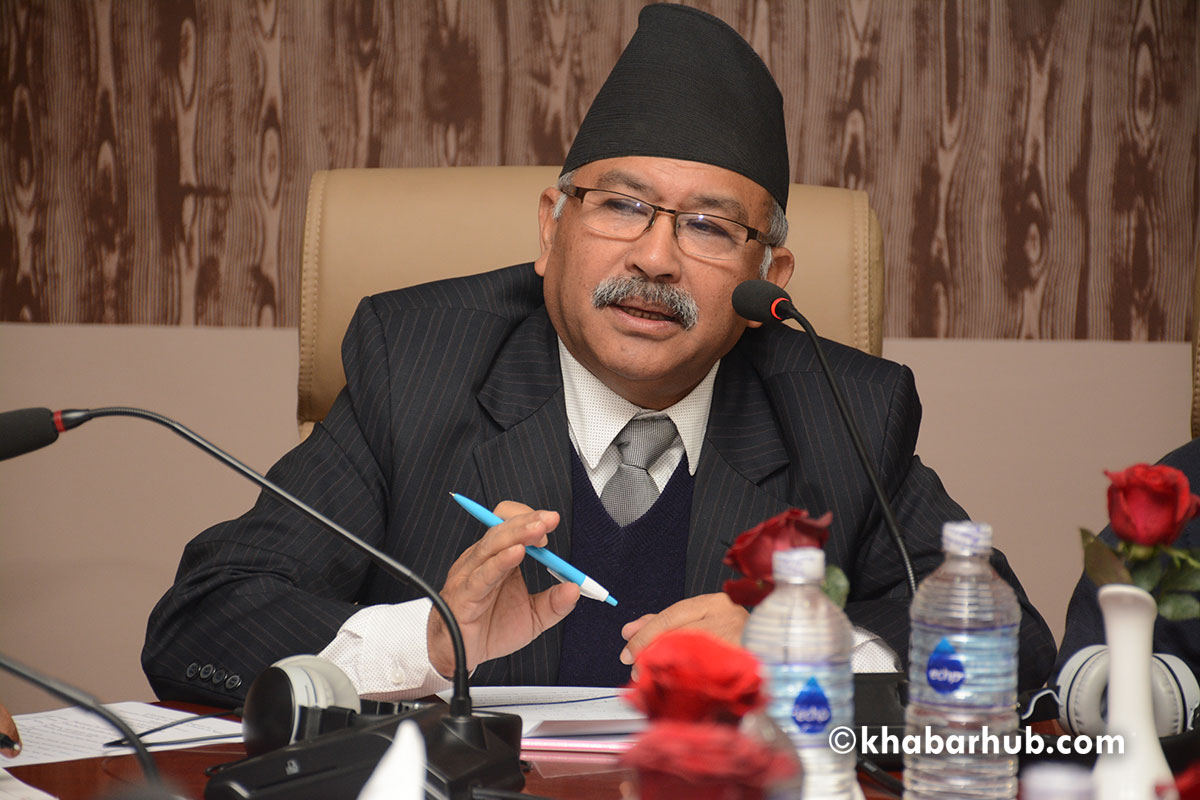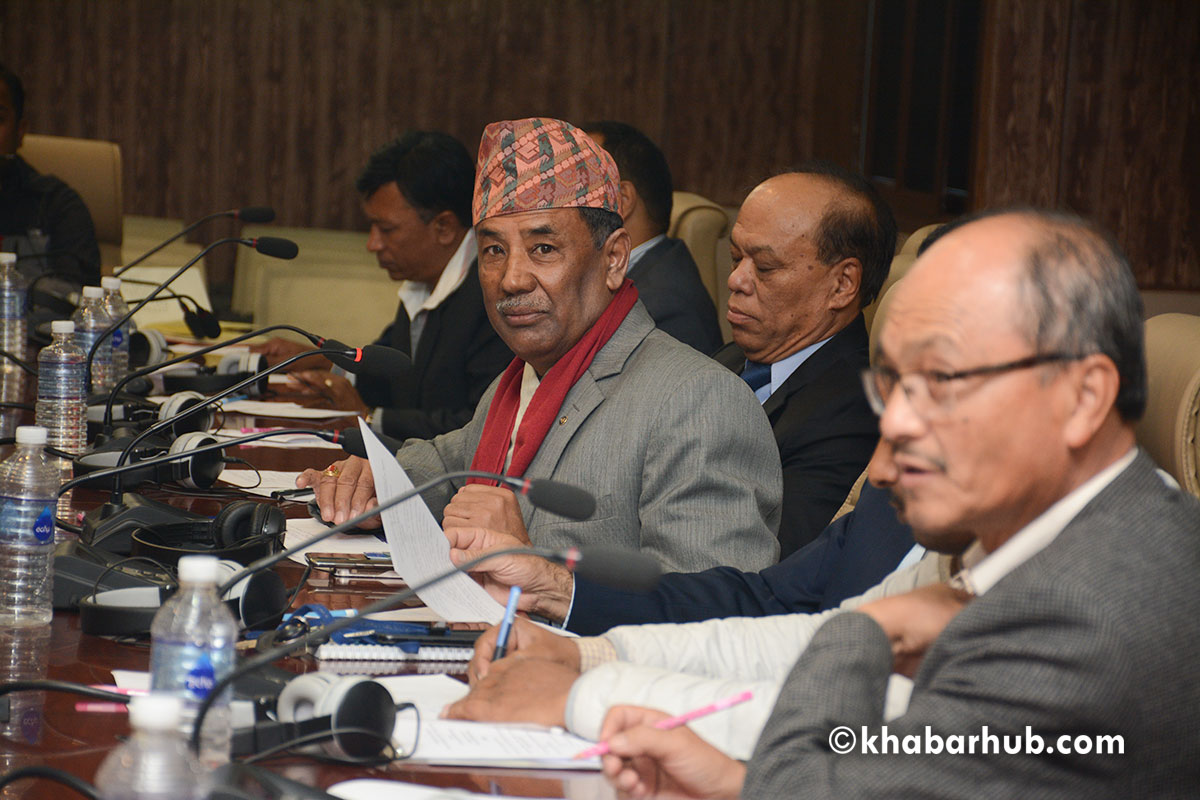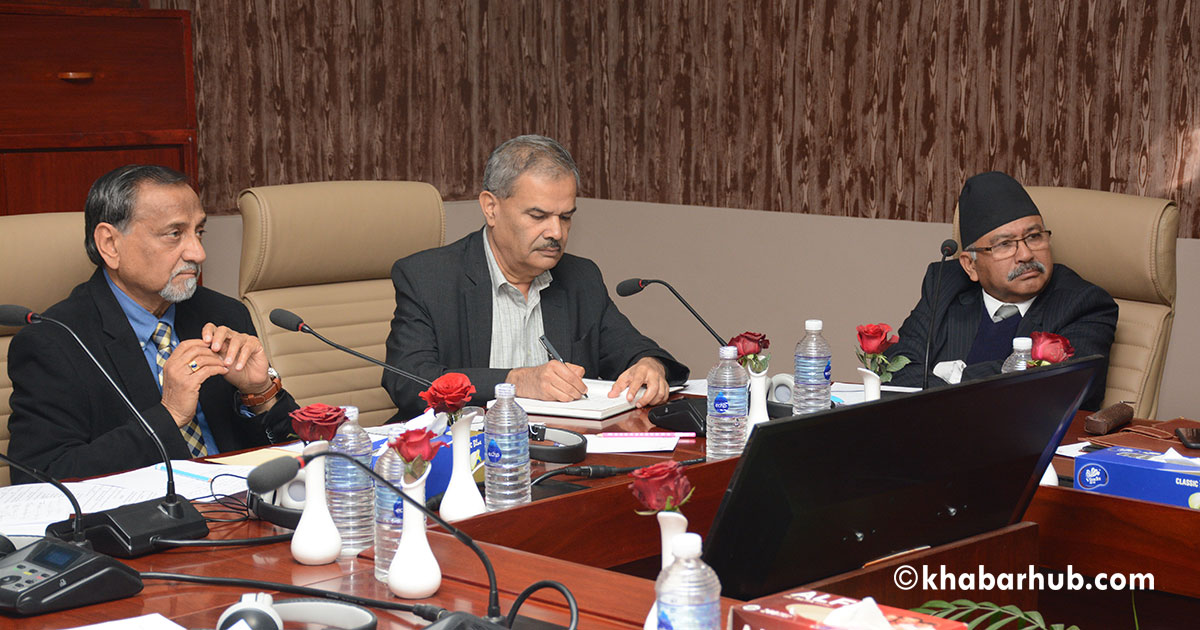KATHMANDU: Former Chief Justice Kalyan Shrestha on Wednesday revealed that insufficient budget allocation has been jeopardizing the judiciary.
Speaking at a program organized by the Institute for Strategic and Socio-Economic Research (ISSR) at the Pavilion Hall in Kathmandu, former Chief Justice Shrestha stated that Nepal government allocates less than one percent of its budget for judiciary which is far below the requirement to enhance people’s access to justice.
“Blaming the judiciary for ‘delayed justice’ is not fair unless it gets sufficient budget,” Shrestha said.

Giving examples of budget provisions in other countries, he added, “The UK with such a large economy allocates 4.5 percent of its total budget to judiciary, and Coast Rica has the constitutional provision of allocating 8 percent to its judiciary. But in Nepal, the appeals for increment of budget go unheard.”
He also expressed sadness at the judiciary being tampered by politics.
He was equally worried about the poor peoples’ access to justice. As the institutions made for the support of the economically marginalized are not functioning as expected, he expressed his hope about the better situation provided the reconciliation centers were established in each office, company and industry.
He criticized the gross consciousness of the bank and financial institutions and queried such institutions to offer justice to the debtors. “Banks’ grossing at the cost of the life of the debtors can hardly be justified,” said former Chief Justice Shrestha. He opined that the banks and financial institutions should also ensure justice in the service provided by them.

Dr. Baikuntha Aryal, Secretary at the Ministry for Industry, Commerce and Supply, blamed poor enforcement and fragile implementation of the legal committees provisioned at local level for poor access to law. “If the local authorities work effectively and make legal committee well-functioning, the situation will improve,” he said.
Dr. Bishwombhar Pyakurel, the Chairperson of ISSR and renowned economist, expressed the possibility of enhancing access to justice through the corporate responsibility of the banks and financial institutions. “Provided the banks and financial institute invested their budget meant for corporate responsibility, situations can be far better,” said Dr. Pyakurel.
Udaya Nepali Shresthaa , banker argued that the constitutional provisions to ensure justice through local level turned out void due to poor implementation mechanism. “One percent amount the banks have to invest under the Corporate Social Responsibility (CSR) provision had not born the expected fruits due to lack of guidelines on the sectors to be chosen for the purpose.

He stated that there should be the provision of tax redemption for the investment to be made under social corporate responsibility.
Kamalesh Kumar Agrawal, the Vice Chairperson of Nepal Chamber of Commerce stated that private sector itself has been the victim of injustice.
He cited legal complication in using the CSR amount for the enhancement of access to justice. He complained about the high fee one had to pay to the legal practitioner and said everything would improve once the economy became strong.
Kiran Shrestha, Executive Officer of Rastriya Banijya Bank opined that the CSR amount, if allocated to 753 local levels, could merely be supplementary provided the government made further investment to ensure justice to all.
“Provided that the government makes the provision of waiving of the tax on CSR, Shrestha said, “collecting CSR amount in one basket is not impossible.”
Kishore Pradhan, the vice-chairman of Federation of Nepalese Chambers of Commerce and Industry (FNCCI), dissented the prevalent provision of one percent CSR and said the percentage should not be fixed. According to him, the private sector is going through hardship due to the new provisions in social security fund.

Mega Bank Chair, Bhoj Bahadur Shah showed his readiness to spend CSR amount in ensuring access to justice.
Responding to various queries, the Vice Chairperson of National Planning Commission, Dr. Puspa Kandel, confessed the low budget allocation for judiciary; however, he defended the present allocation citing that large portion of budget has gone for infrastructure development.










Comment